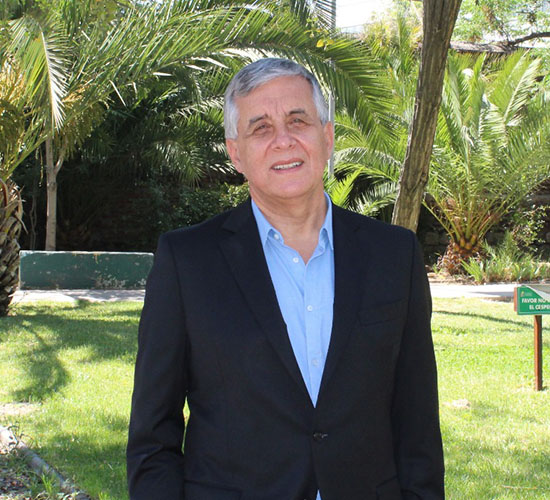Sergio Lavandero, is the new vice president of the Chilean Academy of Sciences

Sergio Lavandero is an academic and researcher at the University of Chile, PhD Biochemistry, specialized in metabolism and cardiovascular signaling.
This Wednesday, the full members of the Chilean Academy of Sciences elected part of the board 2022-2024, by unanimous decision they elected Dres. María Cecilia Hidalgo and Sergio Lavandero as President and Vice President of the Academy, respectively. Dr. Lavandero is a full professor at the University of Chile and director of the FONDAP Advanced Center for Chronic Diseases (ACCDIS).
His appointment is a recognition of the integral work he has carried out for more than 32 years as a scientist with international recognition dedicated to the area of signal transduction of cardiovascular diseases., trainer of a new generation of researchers, editor of renowned scientific journals, scientific disseminator for our community and a commitment to academic administration and management.
Dr. Lavandero currently serves as principal investigator of ACCDIS, adjunct professor at the University of Texas Southwestern Medical Center and academic of the Faculty of Chemical and Pharmaceutical Sciences and the Faculty of Medicine of the University of Chile.
"It is an honor to be part of the board of the Chilean Academy of Sciences," said Dr.. Lavandero, adding that one of its objectives is to continue creating ties between the scientific community and society., "Together we can continue to put forward ideas on the dissemination of knowledge, culture and scientific knowledge in Chile", Said.
A child of public education
Professor Lavandero was fully trained in public education – at the National Institute and at the University of Chile- house of study where he obtained the undergraduate degree in Chemistry and Pharmacy and later reached the degree of Doctorate in Biochemistry.
His scientific improvement was carried out at the National Heart & Lung Institute del Imperial College of Science, Technology & Medicine (London, England), Erasmus Universitat (Rotterdam, Holland), National Institutes of Health (Bethesda, USA), St. Vincent's Hospital, Research Cardiovascular Center (Melbourne, Australia) and the University of Texas Southwestern Medical Center (Dallas, Texas, USA).
Scientific productivity
Professor Lavandero is a scientific reference of international height in his area, has 307 publications in international journals indexed with editorial board, 5 book chapters, 29 articles in national journals and 5 patents.
His articles have been published in renowned scientific journals, located in 10% of the ranking of their disciplines: Journal Citation Reports, Nature, Cell, Nature Review in Cardiology, Nature Communications, Circulation, Circulation Research, Cardiovascular Research, Journal of Clinical Investigation, Autophagy, Cell Death & Differentiation, Biochemical Pharmacology, EMBO Journal, Diabetes, Trends in Endocrinology & Metabolism, International Journal of Epidemiology and Endocrine Reviews.
Dr. Lavandero, he also teaches undergraduate and postgraduate courses and has contributed to the training of: 212 researchers and/or professionals. 70 new academics/researchers currently working in university or research institutions in Chile (12 at the University of Chile, 9 at the Pontifical Catholic University of Chile) and abroad (Austria, Holland, Czech Republic, Colombia, USA, Scotland, Germany, Switzerland, Australia, England), address of 25 post-doctoral students, 87 Doctoral Theses, 14 master's theses and more than 87 undergraduate memorists.
Contribution to public health policies and society
Since 2013 Dr. Sergio Lavandero founded and directs the first Chilean Center of Excellence for the study of Chronic Diseases Advanced Center for Chronic Diseases, (ACCDiS ) formed by the University of Chile and the Pontifical Catholic University of Chile.
Its objective is to conduct transdisciplinary border research, in cardiovascular disease and cancer; train advanced human capital, develop a network of national and international scientific collaboration and contribute to the development of public health policies.
In parallel, since 2014 through Cohorte del Maule (MAUCO), is studied for the first time in Chile, the natural history of chronic noncommunicable diseases.
On the other hand, the researcher also promoted the installation and initial direction of the Regional Associative Project of Scientific and Technological Dissemination and Valuation Explora Northern Metropolitan Region. Which aims to convene girls, Children, young people and adults to participate in activities to disseminate and value science and technology, arousing curiosity and bringing them closer to the knowledge of different scientific areas.
